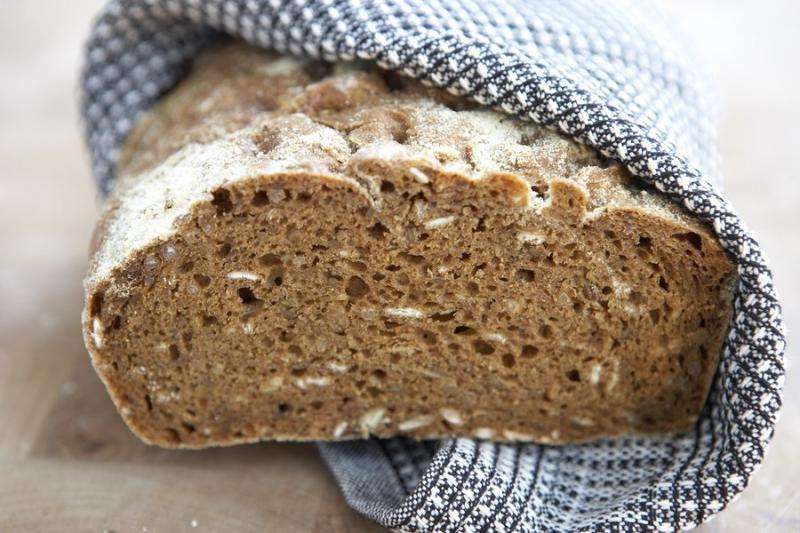Wholesome wholegrain

When it is a matter of health, whole grain has the X factor—or rather the BX factor—in the form of a certain group of bioactive compounds called benzoxazinoids, or BX. Scientists from Aarhus University have documented the uptake of these compounds in humans and their possible beneficial effect on the immune system.
Most people are aware that rye bread is healthy, but not many know that what makes bread a healthy food is not only vitamins, minerals, protein and fibre. Rye bread and other wholegrain foods contain a particular group of health-promoting substances. These bioactive go by the name of benzoxazinoids, or BX for short.
Their presence in wholegrain was discovered by scientists from Aarhus University in 2010. Now, the scientists have dug more deeply to discover the BX factor's secrets.
"Certain medicinal plants and green cereals have previously been found to contain BX, but it was a revelation that they are also found in ripened rye and other wholegrains. Not only that—we also found BX in the final baked bread and other wholegrain products," says Associate Professor Inge S. Fomsgaard from the Department of Agroecology at Aarhus University.
Bread and breakfast
The discovery spurred the scientists on and they began to investigate whether the beneficial substances were absorbed in the body. This was studied in rats, pigs and humans in the project Bread and Breakfast, which was led by Inge S. Fomsgaard.
"We found that the BX compounds pass through the gut wall and circulate in the body in different chemical forms. By comparing the amount that was eaten with the amount circulating in the blood and excreted in urine, we could work out that some of the substances could be transported into some of the organs where they are able to do some good," explains Inge S. Fomsgaard.
The scientists also examined whether BX has an effect against allergies or whether they regulate the immune system. This part of the study was done by examining the blood cells in the laboratory. There was no apparent anti-allergic effect, but there was an effect on the immune system.
"Eating a diet rich in BX compounds made certain immune system cells react more strongly to some types of bacteria," says Inge S. Fomsgaard. She leads another ongoing project—RyeproC—where scientists are studying whether benzoxazinoids in rye bread have a beneficial effect on prostate cancer.
"Improving our knowledge about the function of benzoxazinoids can lead to the growing of crops that can be converted to food products and beverages with an optimum content and composition of these health-promoting compounds, so that consumers can increase their BX intake without having to eat large quantities of food," says Inge S. Fomsgaard. This does, however, require further verification of the effect of BX in order that the European Food Safety Authority (EFSA) may approve the appraisal of the effect in the retailing of BX-containing foods.
More information: Khem B. Adhikari et al. Absorption and metabolic fate of bioactive dietary benzoxazinoids in humans, Molecular Nutrition & Food Research (2013). DOI: 10.1002/mnfr.201300107
Khem B. Adhikari et al. Benzoxazinoids: Cereal phytochemicals with putative therapeutic and health-protecting properties, Molecular Nutrition & Food Research (2015). DOI: 10.1002/mnfr.201400717



















